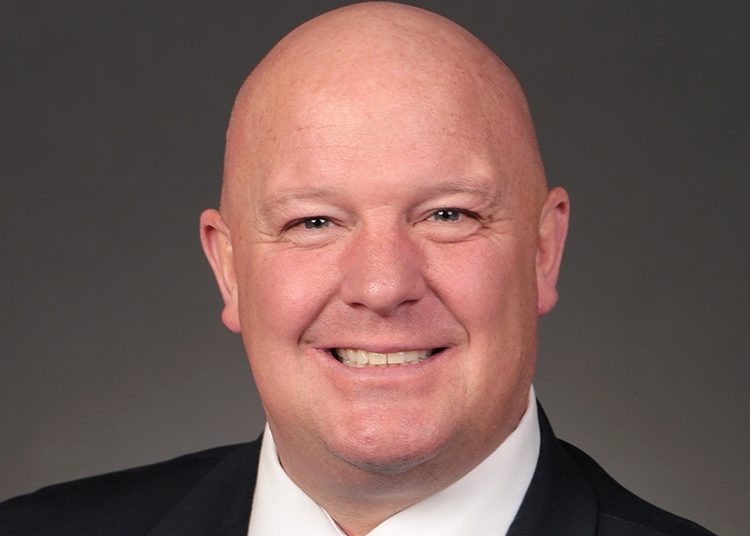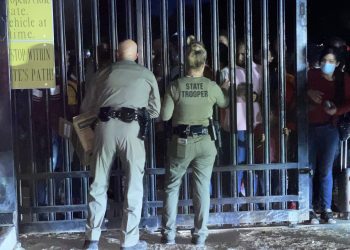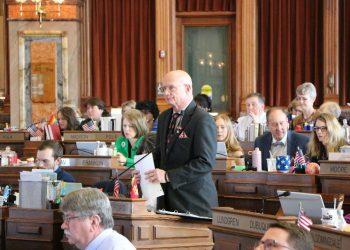The Governor’s annual address to Iowa on January 11 contained two central agenda items: lower taxes for Iowans and get anyone who can work back on the job. Let’s talk taxes next time. Today I’m focused on her workforce bill as we are moving it out of committee and I will be presenting it to the entire Senate for passage.
Iowa has gone through a tough spell reacting to a break-away virus, but most of the damage was actually government inflicted. Mistakes were made, but corrections were implemented much faster in Iowa than in most states. That allowed our economy to recover faster and to a higher degree than most other places. As business and industry ramped up, they found themselves competing against an East and West Coast that were still not free to work. Our governor used hundreds of millions of federal Covid dollars to prop up our Unemployment Insurance Trust Fund. This kept employment taxes lower than they would have been, as there is a formula that balances business taxes per employee against withdrawals made to unemployed Iowans. Businesses found themselves able to hire to full capacity and then expand to create new job openings. This is usually a dream come true for a state economy and everyone wins.
In Iowa this worked so well we swung into an usual balance. We now have over 80,000 job openings for 57,000 Iowans looking for work. We need to attract legal residents to Iowa, and there are plans in place to do that, but we also need to turn working Iowans back into a new job if they find themselves jobless. There are strategies that have worked elsewhere we can implement.
SSB 3093 is a bill I am managing in the Senate for the governor. It modernizes the unemployment system in ways that change the purpose from UN-employment to RE-employment. It starts with changing the legislative intent language in Iowa Code. The original language was written in the Depression era of the 1930s when there seemed no hope and there were no jobs, training, or safety net. The new language will focus on job training, matching employers and job seekers, and economic development programs. This serves as a guide for judges as they interpret unemployment law in court decisions.
The bill recognizes that the half-year of unemployment assistance allowed is not good for Iowans or their families. There is a large number of good jobs waiting for applicants, and it is unreasonable to wait six months to re-enter the workforce. The bill lowers the assistance period to four months, which is similar to several other states. States that have reduced the months of assistance from 6 months to 4 have found workers finding jobs in half the time. This is better for everyone.
The bill also places into law a one week waiting period for assistance. Iowa is one of a few states to cover the first week after a lost job. 39 states have a waiting period and it is a better practice than our current policy. Many people find a new job within that first week after filing an unemployment claim. The one-week period also gives time for Iowa Workforce Development to ensure the worker’s identity, verify qualifications, and complete to process of paying claims and lining up job searches and training program opportunities.
The other provisions are smaller, but important updates to Iowa Code. We will put a definition of “misconduct” into code to replace a long history of administrative law judges’ decisions, which now define misconduct. We want the rules to stay the same from case to case. We will compress the “suitable work” timeline down to fit the four-month window. The current provision allows a job seeker to turn down a job if it doesn’t pay the same as the last job. I’d point out anyone can look for their next better paying job while holding a job. We will also allow either employer or employee to skip the Employment Appeals Board and go to District Court if they choose, offering flexibility.
Governor Reynolds put it best in the most important line I have heard from the podium, “There is dignity in work; it gives us meaning and purpose. So when it’s degraded, when idleness is rewarded with enhanced unemployment and stimulus checks, when work begins to seem optional rather than fundamental, then society begins to decay.”
















